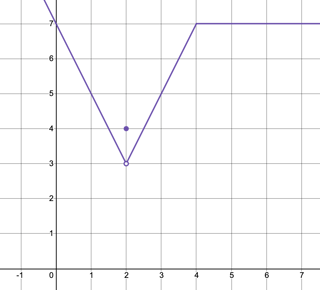I'd like to ask my students whether some real function is differentiable at a certain $x_0$. I prefer not telling them that they have to use the definition of the derivative, but to instead present a question that by its nature would require the usage of the definition. Usually I achieve this goal by giving them some piecewise defined function $f(x)$ which would force them to use the definition.
The problem is the following theorem which can easily be proved using the mean value theorem: if $f(x)$ is continuous in a neighbourhood of $x_0$, and differentiable in that neighbourhood except possibly at $x_0$ itself, then in case $\lim_{x\to x_0} f'(x)$ exists then $f(x)$ is differentiable at that point with derivative equal to that limit, and the result is also similarly correct for one sided limits and one sided derivatives.
This means that students often use this theorem either because they have seen a TA use it, or worse, because they don't see why it would require proof in the first place. In either case, this does not check their understanding of the definition (and I am left with the dilemma of how to grade these correct solutions which implicitly use a theorem which was not proven in class).
My question is: are there exercises which you must solve using the definition of the derivative and which do not easily allow a cop out such as the one above?
My thoughts are that there are 3 options-
A function which is only differentiable at $x_0$ but not in a neighbourhood of $x_0$. For example the function given in this question. All generalizations of this example seem to be very similar to the original one, so it is not a good exam question. There are more examples in the answer to that question, but they all rely on infinite series which have not yet been covered at this point.
A function for which continuity at $x_0$ is hard to prove. This seems unlikely, because if it's hard to prove continuity, it will also be hard to differentiate the function at that point.
A function which is not differentiable at all, not at $x_0$ nor around it. This would disallow calculating $f'(x)$ and then taking its limit, but then we are left with mostly boring examples and in any case the solution is always that the derivative does not exist.
I'd appreciate any ideas for such a function which forces you to differentiate "by hand", or any thoughts whatsoever on how to tackle this problem.
